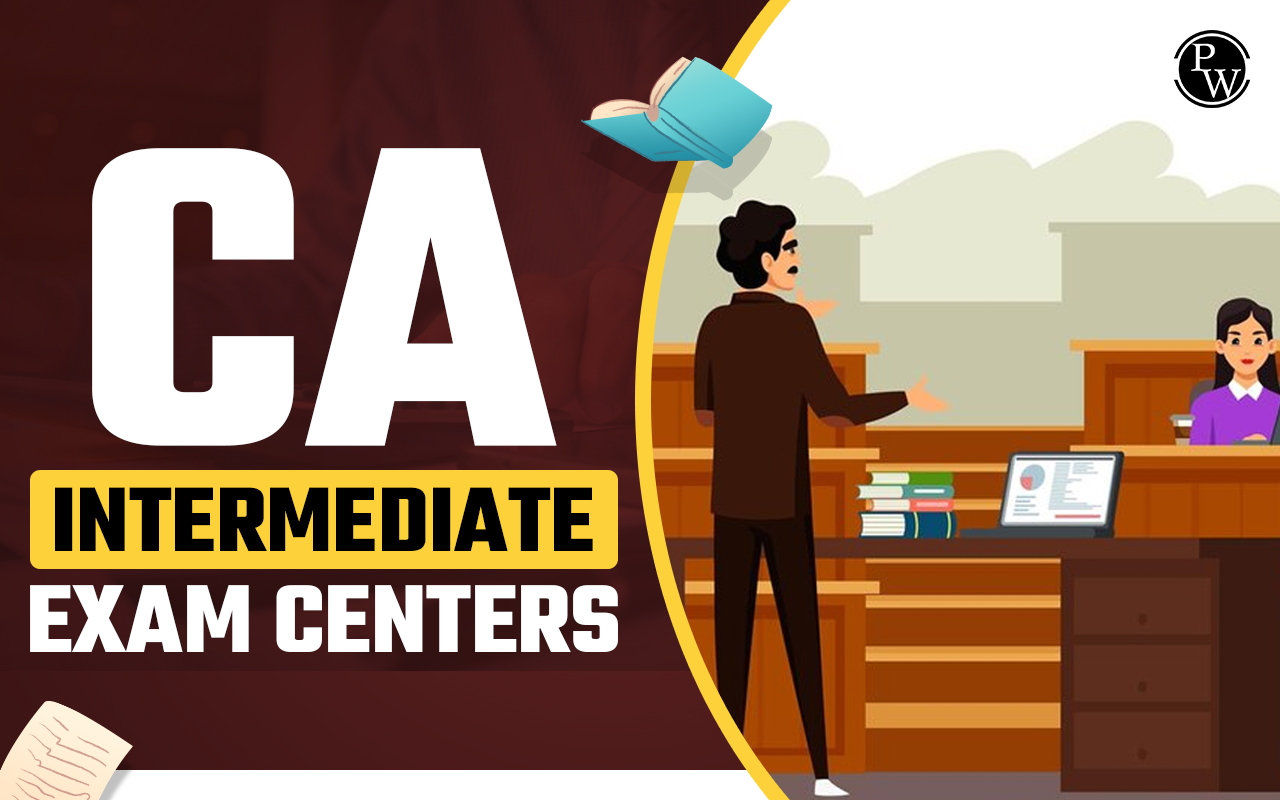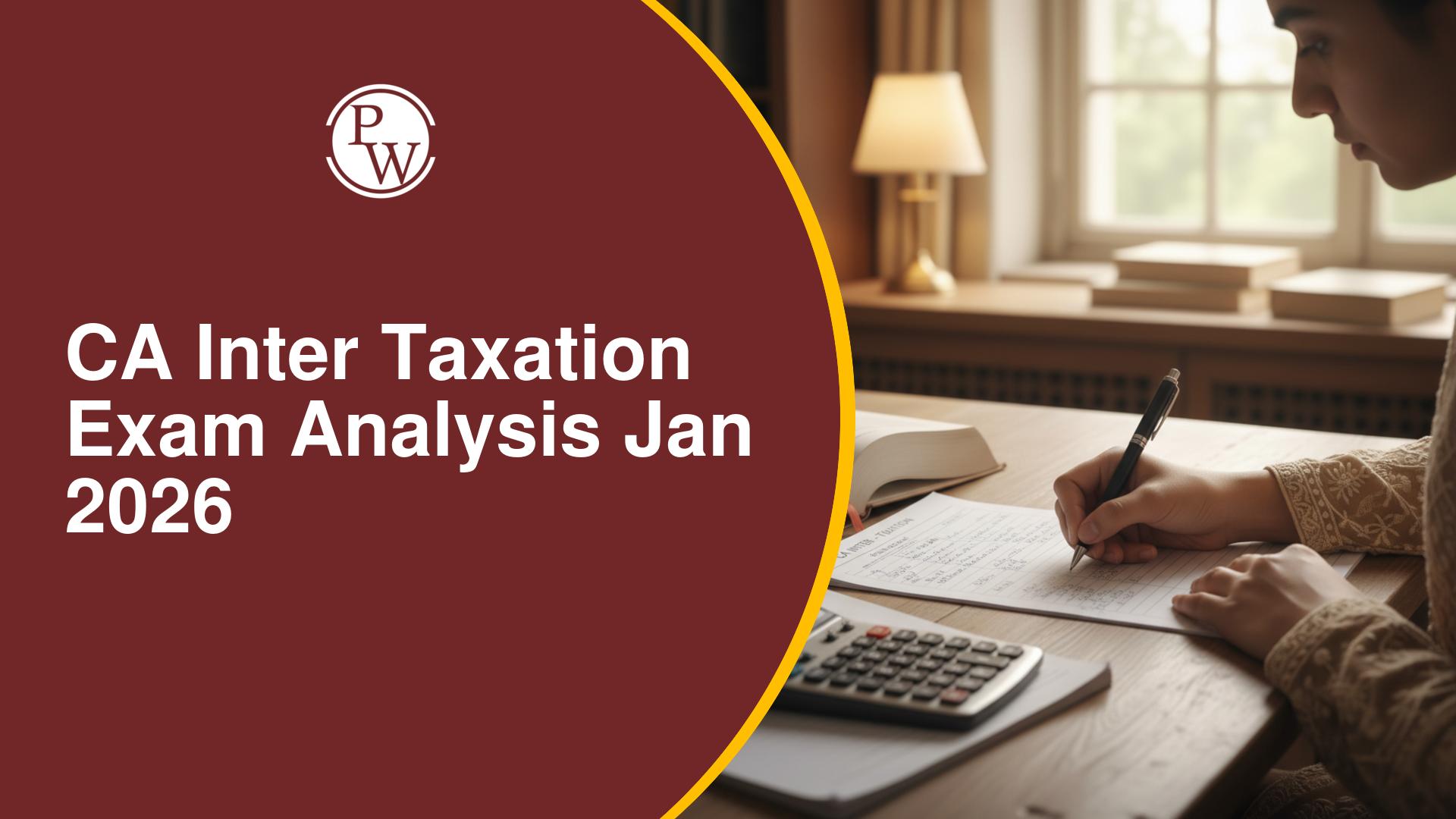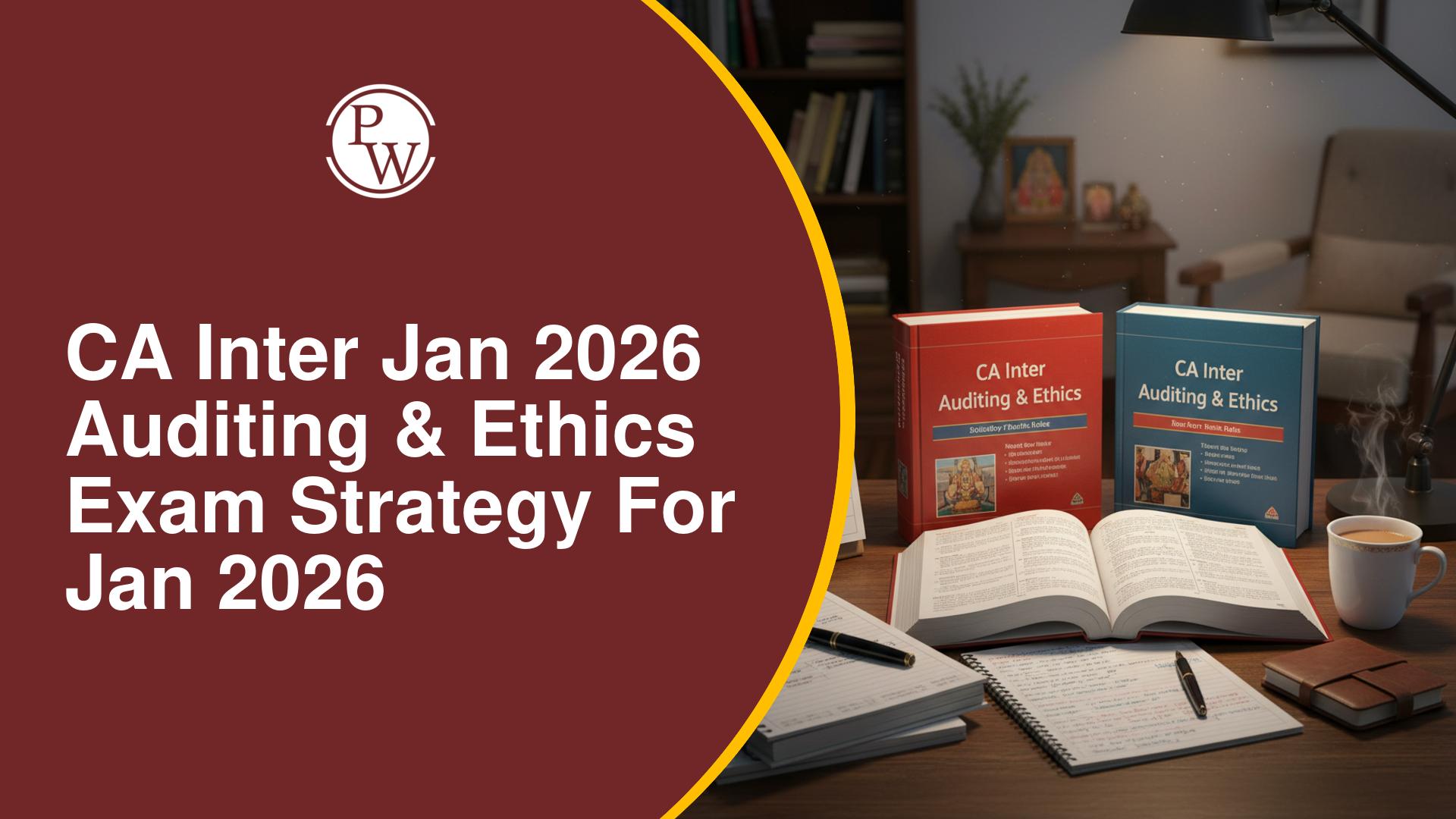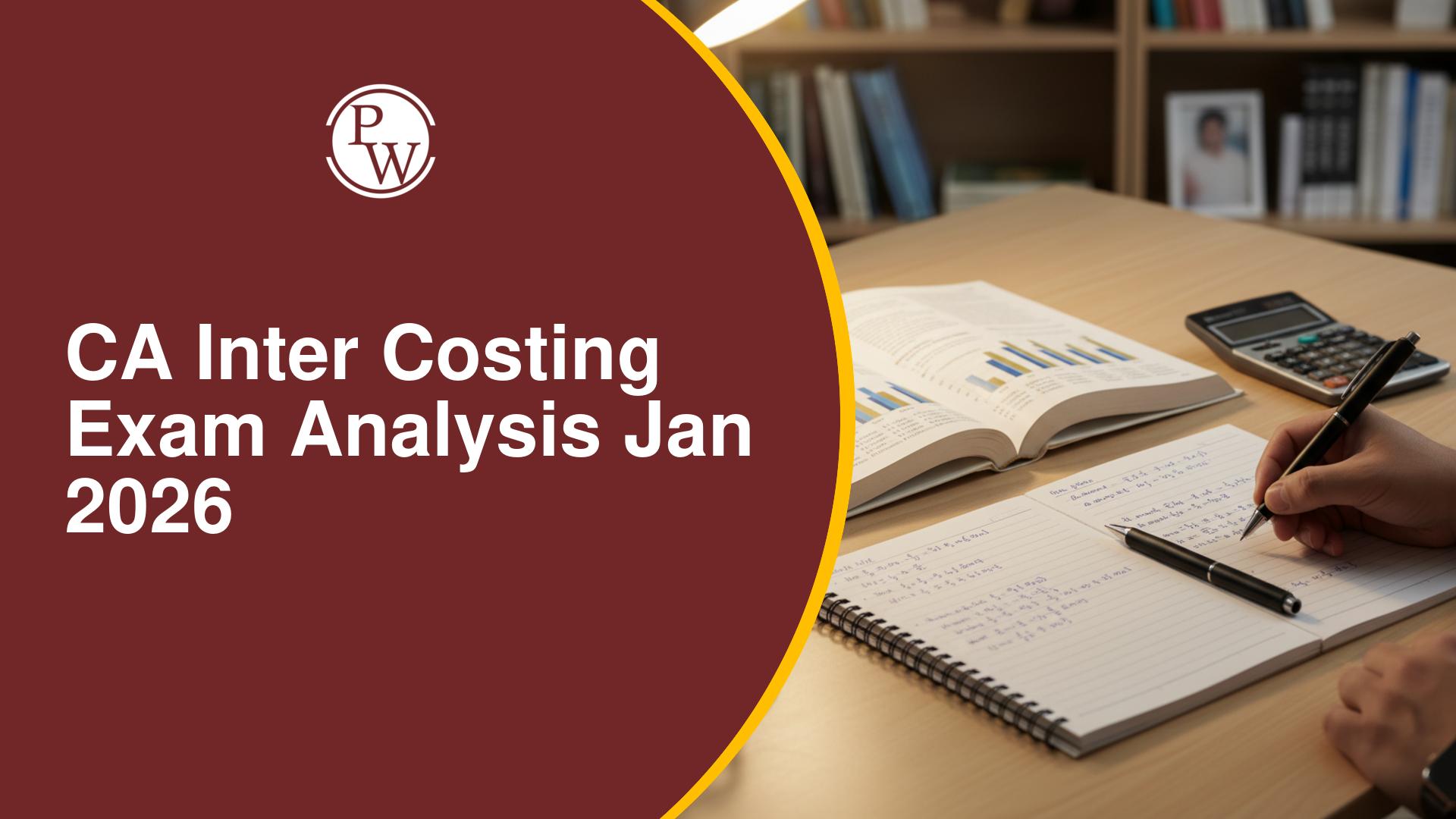
Study Plan for CA Intermediate Group 1: Many students are unsure about how to effectively prepare for the CA Intermediate exam in September 2024, especially when it comes to Group 1 subjects. At this point, it’s essential to shift your focus entirely to your studies. Remember, to pass the CA Intermediate exam, you need to score at least 40% in each subject and 50% overall across all subjects.
The CA Intermediate Syllabus is divided into two groups and six subjects. While every part of the syllabus is important, certain topics are more scoring and take less time to cover. If you're aiming for a top result or even a single-digit rank, it’s crucial to have a strategic approach. In this article, we'll provide a subject-wise Study Plan for CA Intermediate Group 1.CA Intermediate Group 1
CA Intermediate Group 1 consists of three subjects that are critical for laying a strong foundation in your CA journey. These subjects include Advanced Accounting, Corporate and Other Laws, and Taxation. Each subject requires a strategic approach to ensure thorough preparation. Advanced Accounting focuses on concepts and standards that will be useful in real-life financial scenarios, while Corporate and Other Laws delve into the legal framework essential for businesses. Taxation gives an in-depth understanding of direct and indirect taxes. With a clear study plan for CA Intermediate Group 1 and consistent effort, you can effectively prepare for each of these subjects and boost your chances of achieving success.Study Plan for CA Intermediate Group 1
To help you effectively prepare for CA Intermediate Group 1, let’s break down the preparation strategy for each subject. Group 1 consists of three subjects: Advanced Accounting, Corporate and Other Laws, and Taxation. Here's a subject-wise study plan for CA Intermediate Group 1 to maximize your preparation and improve your chances of success:Study Plan for CA Intermediate Group 1 Advanced Accounting
Accounts is considered a scoring subject in both CA Intermediate and CA IPCC exams. Many students significantly boost their overall percentage through the Accounting paper. Key topics covered in this subject include:- Accounting Standards (including their formation, IND AS, and IFRS)
- Preparation and Presentation of Financial Statements based on Accounting Standards
- Company Accounts
- Accounting for Special Transactions
- Specialized Accounting
- Partnership Accounting (topics like amalgamation, conversion into a company, sale to a company, and issues related to LLP)
Study Plan for CA Intermediate Group 1 Corporate and Other Laws
The Corporate and Other Laws paper in CA Intermediate is divided into two sections: Company Law and Other Laws. Company Law carries 60 marks, while Other Laws cover the remaining 40 marks. This subject has a broad syllabus, requiring regular and thorough revision. Mnemonics can be particularly helpful in memorizing and recalling sections during the exam. While Company Law makes up the larger and more scoring portion, Other Laws, though only worth 40 marks, are equally detailed. It’s a common misconception that you can pass by focusing only on Company Law and ignoring Other Laws. Avoid this mistake. The first question in the exam is compulsory, and though you can skip one question later, every other question will include parts from Other Laws. Neglecting this section could give the examiner a poor impression, making it harder to achieve passing marks, as the ICAI expects you to cover the entire syllabus. For Company Law, the Companies Act, 2013 applies to your syllabus, covering Sections 1 to 148, along with some provisions of the Companies Act, 1956 that remain in force. Key topics in Company Law include:- Preliminary
- Incorporation of Company and Matters Incidental Thereto
- Prospectus and Allotment of Securities
- Share Capital and Debentures
- Acceptance of Deposits by Companies
- Registration of Charges
- Management and Administration
- Declaration and Payment of Dividend
- Accounts of Companies
- Audit and Auditors
- The Indian Contract Act, 1872
- The Negotiable Instruments Act, 1881
- The General Clauses Act, 1897
- Interpretation of Statutes
Study Plan for CA Intermediate Group 1 Taxation
The Taxation paper in CA Intermediate is divided into two sections: Income Tax and Indirect Taxes. Income Tax accounts for 60 marks, while Indirect Taxes covers 40 marks. This paper strikes a balance between theoretical knowledge and practical application. To do well, it’s essential to thoroughly understand each clause—not just for the exam, but also to perform effectively during your articleship. At the Intermediate level, Salary and House Property are especially important, with a guaranteed question from the Salary Head in every paper. Learning section numbers, especially charging sections, is also key. Key topics in Income Tax include:- Basic Concepts
- Residential Status and Scope of Total Income
- Income that does not form part of total income
- Heads of income and provisions for computing income under each head
- Income of other persons included in the assessee’s total income
- Aggregation of income, set-off, or carry forward and set-off of losses
- Deductions from Gross Total Income
- Computation of total income and tax liability of individuals
- Advance Tax, TDS, and TCS
- Filing returns of income and self-assessment
- Concept of Indirect Taxes
- Goods and Services Tax (GST)
General Tips for CA Intermediate Group 1 Exams
Here are some effective strategies to help you pass the CAIntermediate exams on your first try:- Time Management: Avoid distractions like social media, TV, and social outings. Dedicate 3-4 hours daily to focused study time.
- Daily Study Routine: Aim to study for 10-11 hours each day. Regular practice with test papers and mock exams will help you cover the syllabus efficiently.
- Self-Evaluation: Regularly assess your preparation by solving practice and mock tests. Identify and review areas where you need improvement.
- Practice Extensively: Familiarize yourself with various question types by practicing as much as possible. Consistent practice will improve your chances of achieving a high score.
- Take Mock Exams: Regularly complete mock exams to enhance your knowledge and maintain your writing speed. Mock tests also provide valuable self-assessment opportunities.
CA Intermediate Group 1 FAQs
How should I manage my time for CA Intermediate Group 1?
Focus on avoiding distractions and dedicate 3-4 hours daily to your studies. Aim for 10-11 hours of study each day to cover the syllabus effectively.
What are the key topics to study for Advanced Accounting?
Concentrate on Accounting Standards, IFRS, IND AS, and partnership accounting. Prioritize solving practice questions and using up-to-date study materials.
How can I prepare effectively for Corporate and Other Laws?
Study both Company Law and Other Laws thoroughly. Use mnemonics for memorization and practice past papers to improve your understanding and application of legal concepts.
What should I focus on for the Taxation paper?
Focus on Income Tax concepts such as computation of total income, TDS, and GST. Ensure you understand both theoretical aspects and practical applications.
How important are mock exams in CA Intermediate preparation?
Mock exams are crucial for assessing your knowledge and improving your exam-taking skills. Regularly complete mock tests to boost your confidence and speed.
Talk to a counsellorHave doubts? Our support team will be happy to assist you!

Free Learning Resources
PW Books
Notes (Class 10-12)
PW Study Materials
Notes (Class 6-9)
Ncert Solutions
Govt Exams
Class 6th to 12th Online Courses
Govt Job Exams Courses
UPSC Coaching
Defence Exam Coaching
Gate Exam Coaching
Other Exams
Know about Physics Wallah
Physics Wallah is an Indian edtech platform that provides accessible & comprehensive learning experiences to students from Class 6th to postgraduate level. We also provide extensive NCERT solutions, sample paper, NEET, JEE Mains, BITSAT previous year papers & more such resources to students. Physics Wallah also caters to over 3.5 million registered students and over 78 lakh+ Youtube subscribers with 4.8 rating on its app.
We Stand Out because
We provide students with intensive courses with India’s qualified & experienced faculties & mentors. PW strives to make the learning experience comprehensive and accessible for students of all sections of society. We believe in empowering every single student who couldn't dream of a good career in engineering and medical field earlier.
Our Key Focus Areas
Physics Wallah's main focus is to make the learning experience as economical as possible for all students. With our affordable courses like Lakshya, Udaan and Arjuna and many others, we have been able to provide a platform for lakhs of aspirants. From providing Chemistry, Maths, Physics formula to giving e-books of eminent authors like RD Sharma, RS Aggarwal and Lakhmir Singh, PW focuses on every single student's need for preparation.
What Makes Us Different
Physics Wallah strives to develop a comprehensive pedagogical structure for students, where they get a state-of-the-art learning experience with study material and resources. Apart from catering students preparing for JEE Mains and NEET, PW also provides study material for each state board like Uttar Pradesh, Bihar, and others
Copyright © 2026 Physicswallah Limited All rights reserved.









